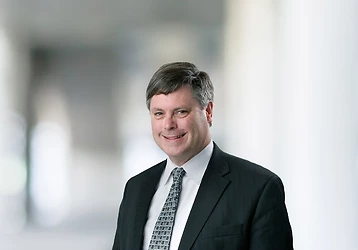Protecting Institutional Rights: The First Amendment Religion Clauses from a Different Perspective
The Supreme Court is seriously considering doing something it almost never does: take a case not to resolve a deep-seated conflict among the lower courts about how to interpret the law, but merely to correct a single court’s egregious error. The irony is that if the Court takes the case, it may come face-to-face with a split concerning the First Amendment that has been simmering silently among the lower courts for forty years. And if it takes the case, it will also open avenues to reconsidering the rights of churches and church-based institutions under the First Amendment Religion Clauses.
The Court’s Quandry
The Court has cogitated for almost nine months over whether to grant certiorari to hear Archdiocese of San Juan v. Feliciano. As the case name suggests, Feliciano is a religious freedom case. In Feliciano, three Catholic schools defaulted on their pension obligations to over 200 retired employees. Some of those employees sued “the Roman Catholic and Apostolic Church in Puerto Rico,” a non-existent entity. Most courts would have assessed damages only against the schools or entities that sponsored the schools. But the Supreme Court of Puerto Rico held that the plaintiffs could collect damages against any Catholic institution in Puerto Rico.
This decision threatens hundreds of parishes in six separate dioceses, as well as scores of other independent Catholic institutions, that had nothing whatsoever to do with the three Catholic schools or their pension plans. The trial court gave the sheriff the authority to seize Catholic assets anywhere in Puerto Rico even in the dead of night. The court’s decision has wreaked economic chaos on the church, raising questions as to whether church buildings will be repossessed or accounts frozen to pay the pension liability. Some church programs have been crippled by the uncertainty. Some parishes, unclear about whether churches could be sold to pay the debt, are uneasy whether they can maintain a reliable schedule of Sunday services. Given that 85% of Puerto Rico’s 3.2 million people are Catholic, the court’s decision represents an extraordinary governmental assault on the independence of the vast majority of religious institutions on the island.
The Supreme Court nevertheless has hesitated for months to take the case. Rarely does the Court accept a case merely to correct one court’s error. But superstar Supreme Court lawyer Paul Clement, who filed the request that the Court hear the case, could not point to any splits in the lower courts. The case is further complicated by the fact that, unlike in virtually all other American jurisdictions, very few Catholic Church institutions in Puerto Rico are incorporated under the civil law. If the Supreme Court takes this case, it might be concerned that it runs the risk that its decision will affect only Puerto Rico, not the entire U.S. For a court that typically hears only cases of national significance, that is a serious stumbling block.
Click here to read the complete article in The Federalist Society.











